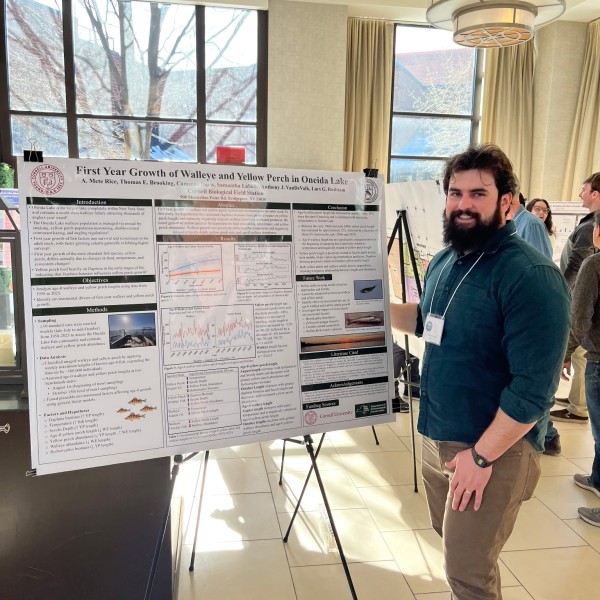Boor’s term will begin when her successor at CALS is in place and will run through June 30, 2025. The Executive Committee of the Cornell Board of Trustees approved Boor’s appointment June 5.
Boor will succeed Barbara A. Knuth as dean of the Graduate School, and the position is being expanded to include the new role of vice provost for graduate education. Boor will not only lead the Graduate School, which enrolls 4,800 students across dozens of disciplines, she also will serve as Cornell’s institutional advocate for graduate education and oversee the graduate student experience as a member of the university’s leadership team.
“Dean Kathryn Boor embodies the Cornell ethos of pursuing discovery for a public purpose, and she has had a stellar track record leading the College of Agriculture and Life Sciences for the past decade,” Kotlikoff said. “I know that her dedication to supporting faculty, fostering interdisciplinary collaboration and providing opportunities for students as the next generation of global citizens will greatly benefit the Graduate School as she takes the helm there.
“I thank Barb Knuth for her successful two terms leading the Graduate School as dean,” Kotlikoff said, “particularly for her leadership and commitment to supporting graduate students, appreciating and enhancing their role as scholars in the university’s research mission, and strengthening broad support for the graduate student community at Cornell.” Knuth’s term has been extended until Boor begins her new position.
Boor will report to Kotlikoff and work collaboratively with 11 academic deans, responsible for advancing the scholarship and enhancing the career development of the entire graduate school community.
“I plan to build on Dean Knuth’s achievements to focus further on enhancing graduate student funding, supporting development of training grants for graduate students, and illuminating perhaps unexpected pathways to career success for our students,” Boor said.
She added that her “overarching goal is to provide an environment that creates opportunities to prepare our students for leadership roles in their chosen disciplines.”
Boor said the additional role of vice provost for graduate education was one of the parts of the position she found the most enticing.
“I will have the opportunity to advocate for graduate education and the graduate student experience at the highest level of the university,” she said, “and to work closely with others, such as with Vice President for Student and Campus Life Ryan Lombardi, to create seamless experiences across the full spectrum of our Cornell students.”
Over her two terms as dean of CALS, the university’s second-largest college, Cornell has consistently ranked among the top global universities in agricultural science, plant science and animal science. She oversaw record growth in undergraduate applications, and prioritized recruiting and retaining top faculty, hiring more than 130 tenure-track faculty since 2010.
Some of Boor’s key achievements at CALS include: the launch of the School of Integrative Plant Science in 2014; building partnerships with New York state and the U.S. Department of Agriculture; helping to amplify a coalition of scientists into the Cornell Initiative for Digital Agriculture in 2017; and championing active learning in the classroom and expanding curricular offerings, which include the interdisciplinary environment and sustainability major. She also prioritized the college’s national and global leadership in life sciences, food and energy systems, environmental sciences and applied social sciences.
Boor led upgrades of key CALS facilities, including the four-year Stocking Hall renovation project; launched the new Global Development Department; and restructured multiple academic departments, including by merging sister units across the Ithaca and Geneva campuses; and strengthened support for faculty grant proposal preparation, helping CALS faculty achieve the highest research expenditure total on the Ithaca campus for the past four years. As CALS dean, she shared responsibility for leadership and advancement of Cornell Cooperative Extension throughout New York state along with the dean of Cornell’s College of Human Ecology.
Boor’s research focuses on the biological factors that affect transmission of bacteria in food systems, from farm to table. A leading expert on Listeria monocytogenes, she established Cornell’s Food Safety Laboratory and co-leads the Milk Quality Improvement Program.
Boor earned her bachelor’s degree in food science from CALS, a master’s in food science from the University of Wisconsin and a Ph.D. in microbiology from the University of California, Davis. She joined the Cornell food science department in 1994 as assistant professor and led it as department chair from 2007-10.
This article also appeared in the Cornell Chronicle.
Header image: Kathryn Boor ’80, the Ronald P. Lynch Dean of the College of Agriculture and Life Sciences and a professor of food science, has been named dean of the Graduate School. Photo: Allison Usavage.





